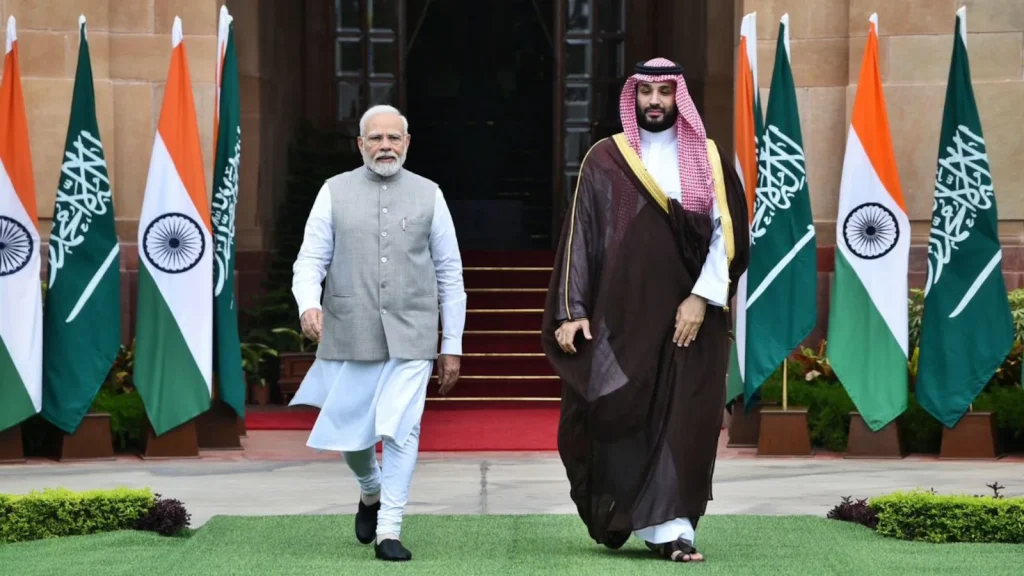Context:
Recently, the inaugural India–GCC Joint Ministerial Meeting for Strategic Dialogue was held in Riyadh, Saudi Arabia.
Key outcomes of meeting
Adoption of Joint Action Plan 2024-2028:
- The plan includes joint activities across various sectors such as health, trade, security, agriculture, food security, transportation, energy, and culture.
- It was agreed that additional areas of cooperation could be incorporated into the Joint Action Plan based on mutual consensus in the future.
Call for Ceasefire in Gaza:
- Indian External Affairs Minister reiterated India’s principled stance on the Palestinian issue, condemning terrorism and hostage-taking while supporting a two-state solution and humanitarian considerations.
Strengthening India-GCC Relations:
- India proposed a framework for the partnership based on 3Ps “People, Prosperity, and Progress,” underscoring the growing and multifaceted nature of their relationship, which includes economics, energy, defense, technology, education, and people-to-people ties.
Gulf Cooperation Council (GCC):

- The GCC is a political and economic alliance of six Middle Eastern countries: Saudi Arabia, Kuwait, the United Arab Emirates, Qatar, Bahrain, and Oman.
- It was established in Riyadh, Saudi Arabia, in May 1981.
- Aims to promote unity among its members, who share common goals and similar political and cultural identities rooted in Arab and Islamic traditions
- The presidency of the GCC rotates annually among its member countries.
India- Gulf Cooperation Council (GCC) Relations
Political Dialogue:
- The inaugural India-GCC Political Dialogue took place on September 26, 2003, during the UN General Assembly.
Economic and Commercial Relations:
- Bilateral trade exceeds $100 billion annually, with the GCC being one of India’s largest trading blocs.
- For the financial year 2023-24, India-GCC bilateral trade reached $161.59 billion. Exports from India were $56.3 billion, and imports were $105.3 billion.
- The UAE is India’s largest trading partner in the GCC, with trade totaling $83.6 billion, followed by Saudi Arabia at $42.9 billion.
- Other trade figures for 2023-24 include Qatar at $14 billion, Kuwait at $10.4 billion, Oman at $8.9 billion, and Bahrain at $1.7 billion.
Strategic Relations:
- India has increased its naval presence in the Gulf to protect sea lanes and counter threats like piracy and terrorism.
- Maritime security is crucial due to the strategic location of the Gulf, particularly for safeguarding the Strait of Hormuz, a key route for India’s energy imports.
Energy Cooperation:
- The Gulf region, which supplies over half of India’s crude oil needs, is expected to see a resurgence in India’s reliance on its oil in 2023-24, following a brief period of importing discounted Russian oil in 2022.

